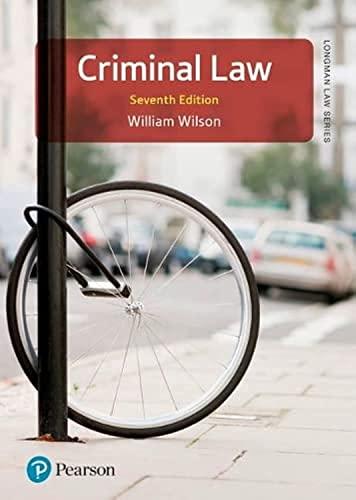Question
Please check the links mentioned for reference. Marihuana is a Schedule 1 drug under federal law. As such, the use, possession, and distribution of marihuana
Please check the links mentioned for reference.
Marihuana is a Schedule 1 drug under federal law. As such, the use, possession, and distribution of marihuana is illegal under federal law.https://www.govinfo.gov/content/pkg/USCODE-2014-title21/html/USCODE-2014-title21-chap13-subchapI.htm(Links to an external site.)
In 2017, California passed SB-94 which permitted, among other things, the use, possession, and commercial sale of marijuana. Seehttps://leginfo.legislature.ca.gov/faces/billNavClient.xhtml?bill_id=201720180SB94(Links to an external site.)
. Marihuana is still categorized as a Schedule 1 drug under federal law.
Part 1(a) If a California citizen is arrested under federal law for possession of marihuana, can the California citizen use the California law SB-94 as a defense? (b) What is the outcome?
Part 2 Identify and explain the constitutional law concept that controls the outcome in Part 1.
Part 3 Suppose that marihuana is removed from the Schedule 1 classification of drugs. As a result, other states establish commercial markets for marijuana sales. Under this scenario, assume California establishes a tax on all marijuana sales, regardless of where of it was produced and then distributed the revenues from the tax to California companies that sell marijuana commercially.(a)Would this tax be legal under the Constitution?(b)What Constitutional law concept that controls the outcome of this scenario?
Step by Step Solution
There are 3 Steps involved in it
Step: 1

Get Instant Access to Expert-Tailored Solutions
See step-by-step solutions with expert insights and AI powered tools for academic success
Step: 2

Step: 3

Ace Your Homework with AI
Get the answers you need in no time with our AI-driven, step-by-step assistance
Get Started


